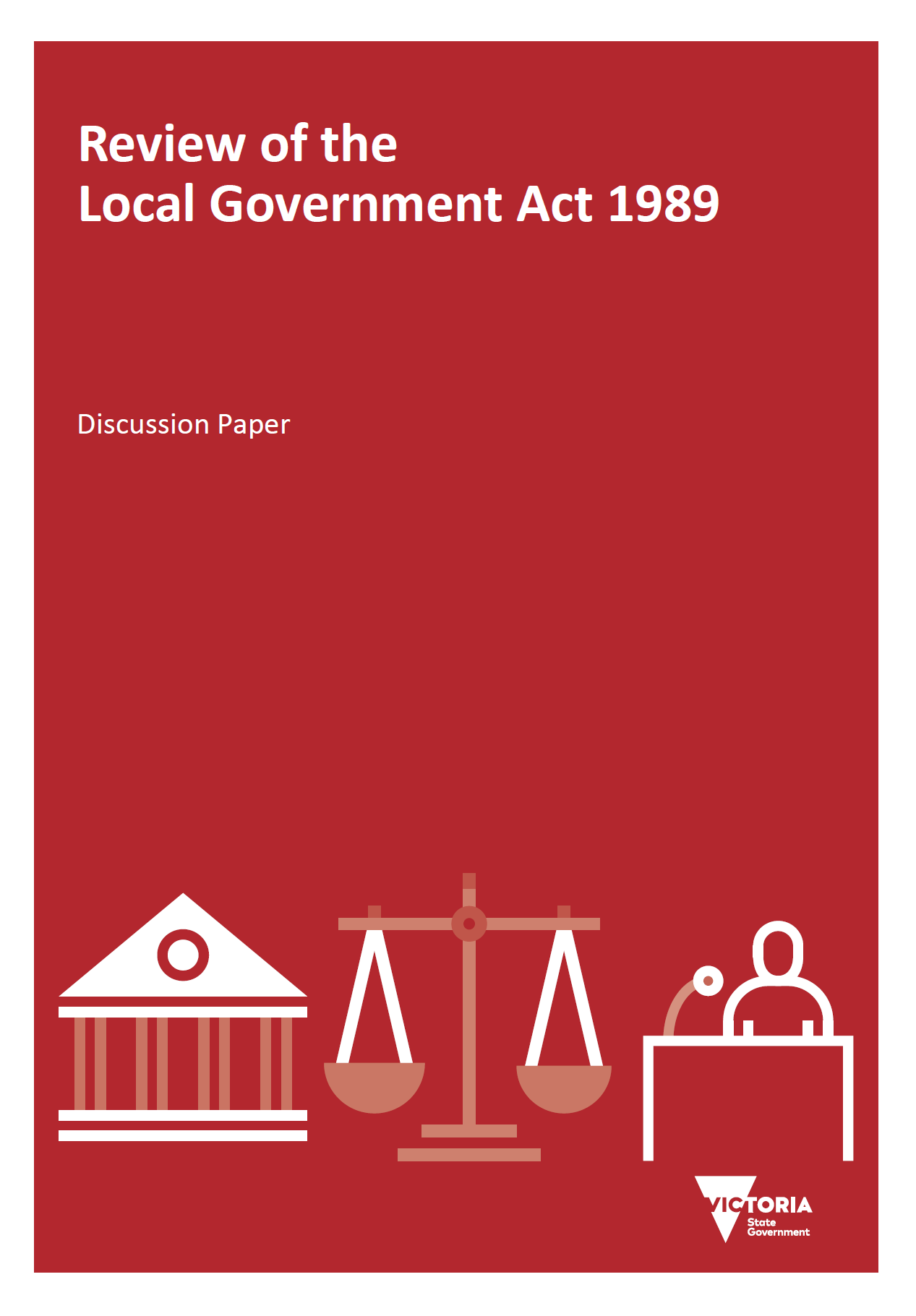local government act review in victoria
WHAT'S HAPPENED
Yesterday the Victorian Government released the draft Local Government Bill. This is the fourth and final phase in the consultation process of the review of the 1989 the Local Government Act, and here at Liminal by Design we have been watching with keen interest.
The review was a major election promise as the Act is now outdated and flawed, predating the Kennett Government’s reforms of the 1990s.
REVIEWS OF OTHER LOCAL GOVERNMENT ACT'S
Although reviews such as this may only take place in a jurisdiction every one to two decades they are common across the world. Of particular relevance to Victoria’s review is the Scottish Local Governance Review, which is coming off the back of similar public interest in new ways of doing democracy and bringing people back into closer contact with government and governance through the Community Empowerment Act. Closer to home, the review of the Local Government Act in Queensland last decade made community planning a statutory responsibility of local government.
VICTORIAN REVIEW OF THE LOCAL GOVERNMENT ACT
The Victorian review aimed at reinvigorating local government at a time when distrust in politicians of all levels of government is high, and interest in politics is high. Our particular interest in the review is around decision making processes, citizen engagement, delegation of powers and local laws. The top ten major reforms are helpfully listed in an explanatory document. Coming in at number four is “Councils will undertake deliberative community engagement processes before adopting a four-year Council Plan and four-year Budget so communities better inform strategic directions and spending priorities of council”.
WHERE ENGAGEMENT FEATURES IN THE DRAFT BILL
Part 3 of the Bill (beginning section 54 on page 53) commits Council’s to:
- adopt and maintain a community engagement policy
- engage the community in the development of the Council Plan and initial budget of a Council
- a series of community engagement principles
Reading the 146-page “Act for the future” directions paper (prior to the release of the draft bill), we were encouraged to see 46 mentions of deliberative processes (or similar), however the draft bill does not mention deliberation.
The mentions of deliberation in the directions paper covered many aspects of council operations, as well as how, when and what they could engage with their community on. Act for the Future, while a preliminary paper, has led or coincided with the number of deliberative processes undertaken in Victorian Councils. Fuelling this rise in deliberative processes has been the Victorian General Auditor’s Office Better Practice Guide for Public Participation in Government Decision-making, it has published findings of audits of Council’s performance of public participation and inclusion of comments on public participation in general audits of councils, which appears to point to the rise of citizens’ democracy in Victoria and a greater understanding of who, why and when to involve deliberative processes in decision making.
The community engagement principles listed in the draft Bill “have been prepared for a legislative purpose and to remain valid over a generation. For this reason they are succinct, high level and sustainable”. Helpfully the principles align with the Victorian Auditor General Offices public participation principles and there is a Table 1 in the explanatory document demonstrates the alignment.
In fact, one of the stated principles of any reforms is to “enhance democracy, diversity of representation, council transparency and responsiveness to the community and the state”, particularly through greater community involvement.
At Liminal by Design, we regularly work with governments, both state and local, that have identified a need for deliberative processes. For example, citizens’ juries or participatory budgeting on issues such as Council Plans, land use planning, population growth and infrastructure investment.
This movement toward more deliberative processes is not confined to local councils and the reform of the Local Government Act. We have recently worked with the Essential Services Commission to aid its understanding of deliberative processes to assess the engagement practices of water authorities on their water pricing reviews.
That said, not every issue is suitable for a deliberative approach. They are best for used for strategic engagements, can be time-consuming and require considerable political and resourcing commitments from organisations.
Over the years, we have come to understand that those subjects that most suit a deliberative approach include those where the consequence of any decision will have a far-ranging or long-term effect and those where there is considerable community concern or divisiveness.
WHAT YOU CAN DO
With the draft Bill released you have until 23 February 2018 to make a submission.
WHAT WE CAN DO
lease get in touch with us to discuss our services, whether you seek to be VAGO audit proof, review your community engagement documentation in light of Section 54 of the draft Bill or whether it is to help your staff and/or Councillors better understand the many benefits of deliberative democracy.





